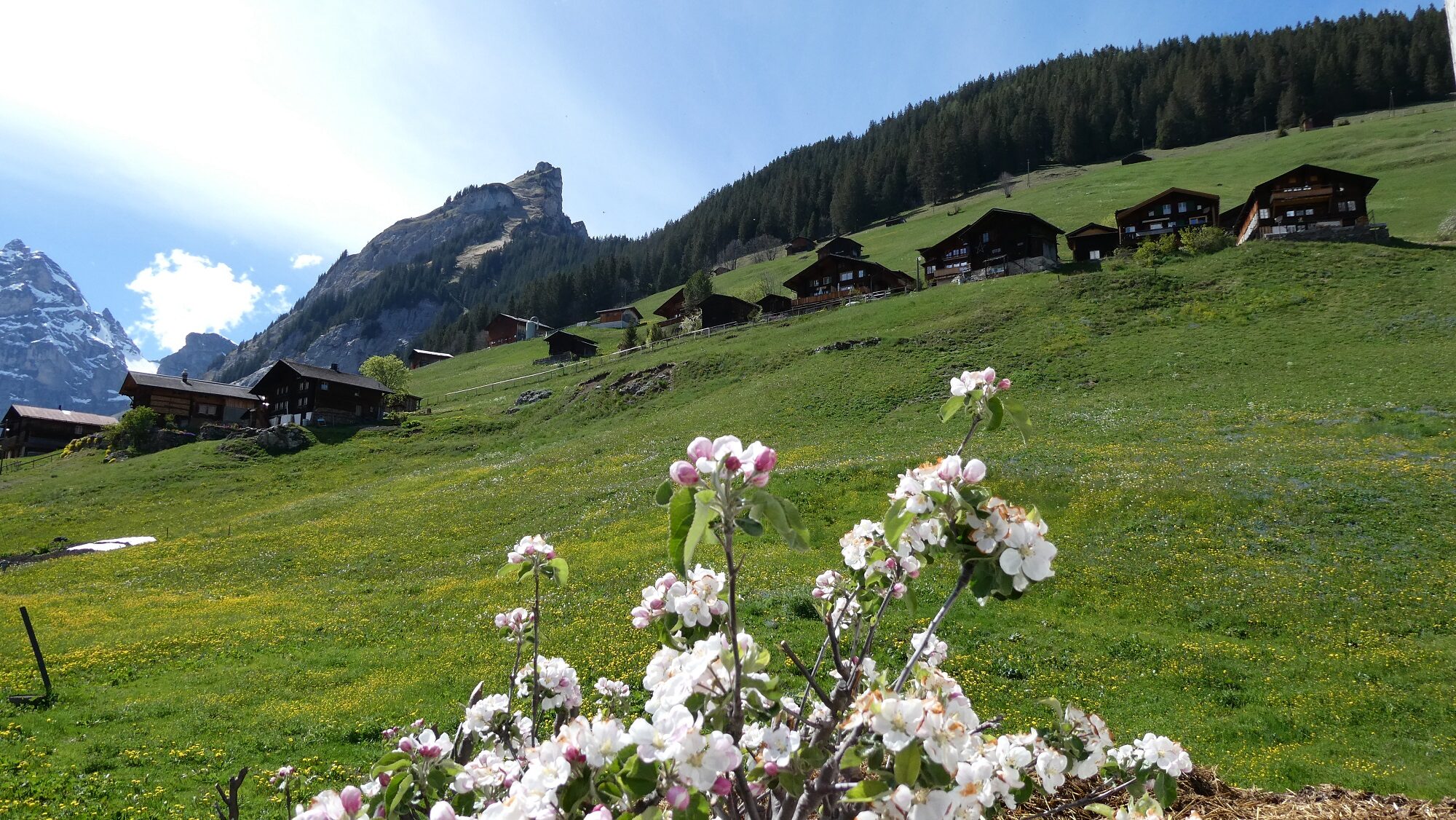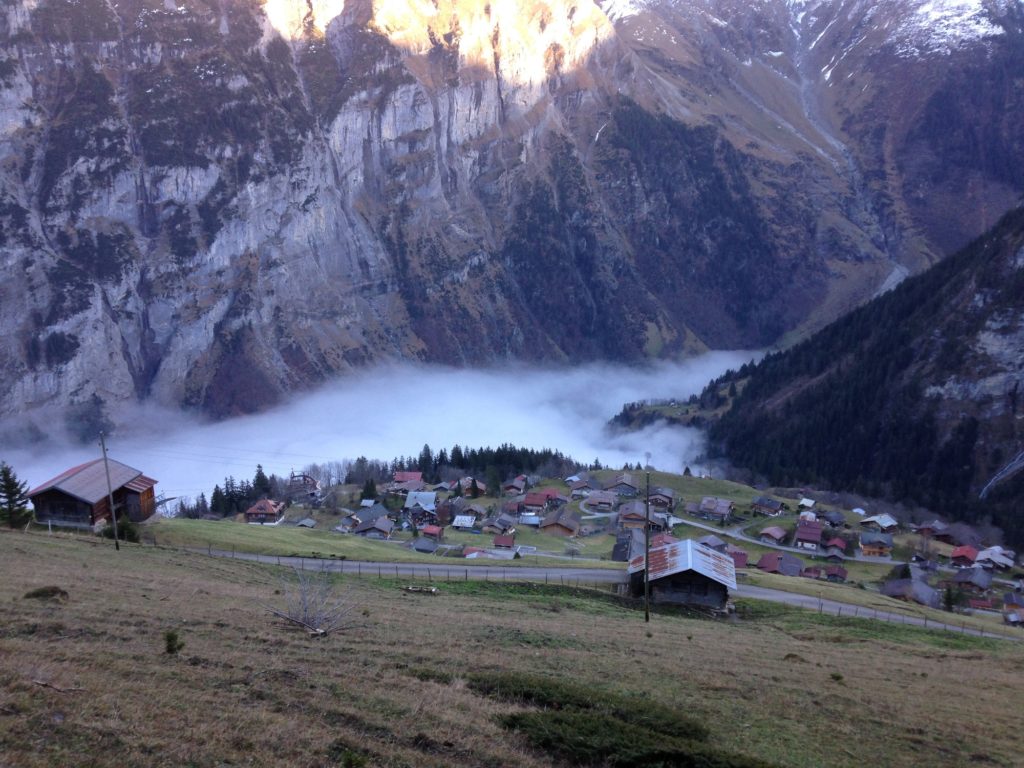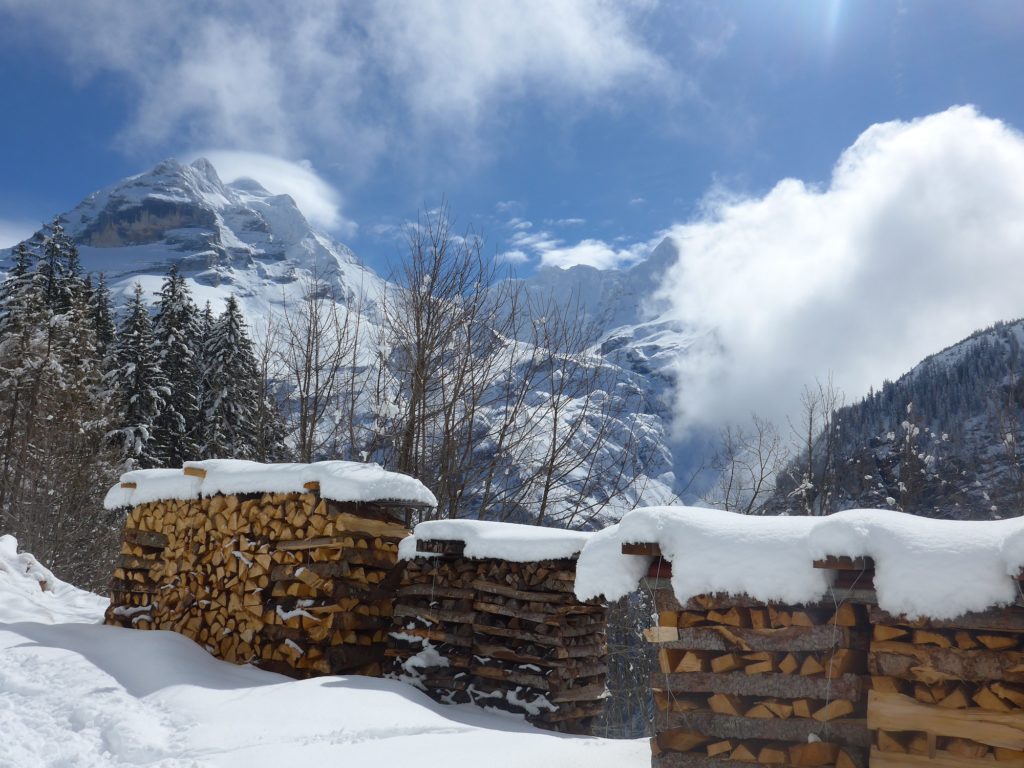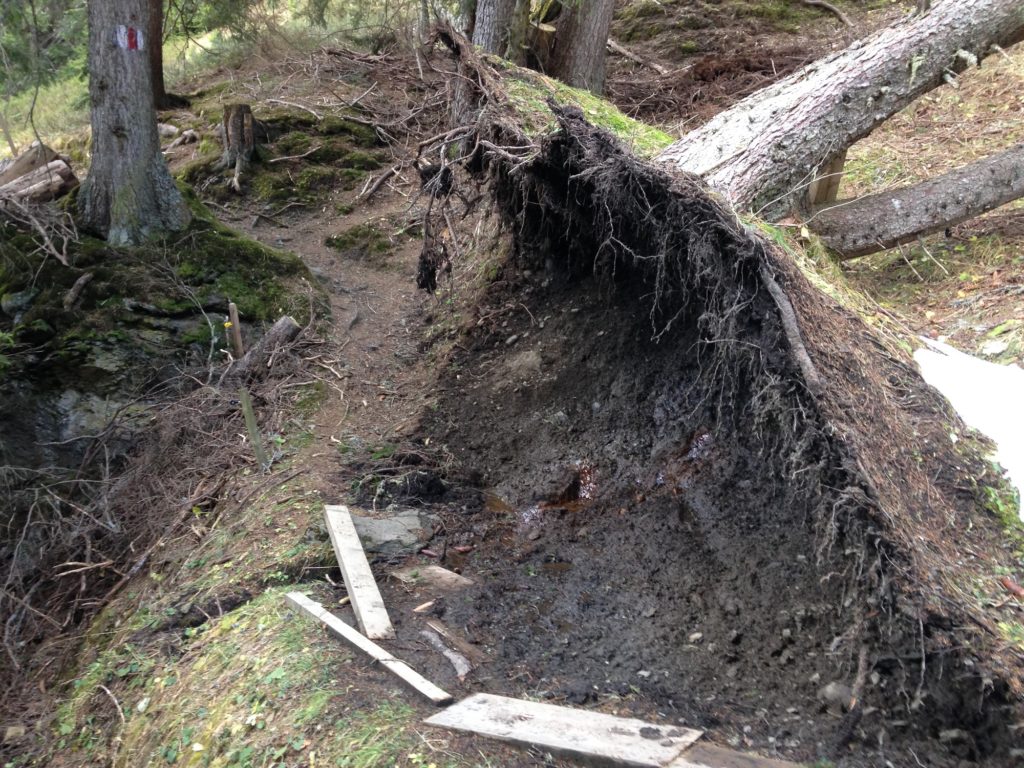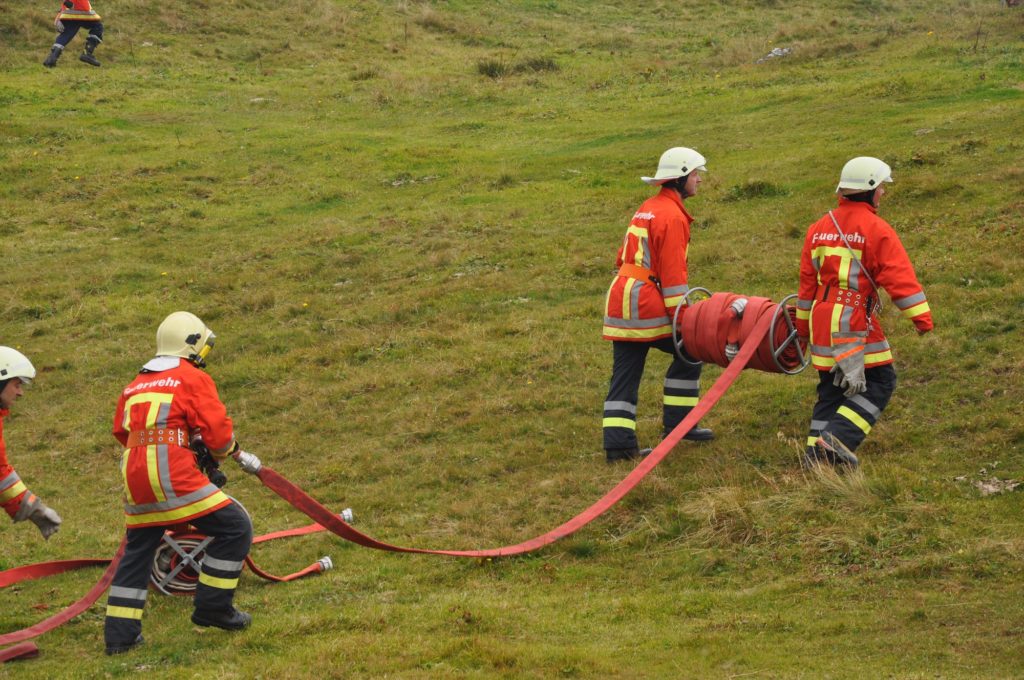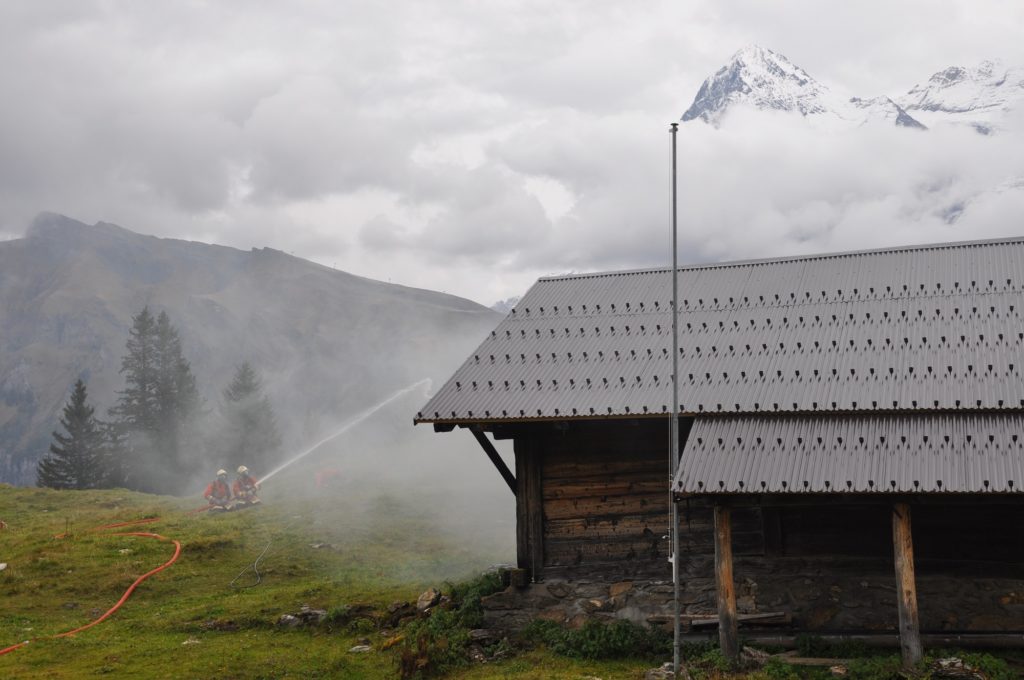The first half of the month is often quite warm. The occasional undaunted flower can still be found. The farmers are busy raking up the fallen leaves on the meadows which they then put into nets to use in the cowshed in winter instead of straw. The liquid manure is then spread over the fields.
Usually around the middle of the month there are a few strong autumn storms, where the oldest inhabitant of the Bernese Oberland, the Foehn, pays us a visit. Almost without warning the Föhn clouds appear behind the Ebnefluh. The fall wind hurtles vertically down to Stechelberg and roars with all its might up the rock faces. The power of this wind is unbelievable. It can damage or even sweep away roofs of houses and barns or bend trees like matches. Only someone who has experienced the power of the Foehn can understand why the locals live in fear of this wind. The wind howls through every crack and you feel that the house is about to fly away. Piles of wood covered with corrugated iron are particularly vulnerable. Heavy stones placed on top to weight it down fly through the air with the corrugated iron, which I have seen being blown several hundred meters. The Foehn also has a great influence on a person's state of mind. While some get headaches, others are in a Foehn rush, in which one becomes rather hyperactive. Since the Foehn is a dry wind, it is also always literally dangerous when fire comes into play. A spark, a gust of wind and the dry grass mean that a house or even several buildings can catch fire! In the past, there was always a Foehn guard during Foehn storms. This meant that two men in fire department uniforms would take turns walking through the village during the night hours, checking whether the fire had been extinguished in all the ovens. Smoking outside was strictly forbidden. Thanks to these measures, Gimmelwald has not yet become a victim of the Foehn. A large part of Muerren was burnt down in a Foehn storm in 1926. The fire department is of course still on duty if necessary. In Gimmelwald, everyone is basically required to be a firefighter. In a family with children, one parent is obliged to belong to the fire department. The fire department is organised together with Muerren and about 10 exercises take place throughout the year.
After the foehn has let off steam for a few days, the first snow often falls. Also the sheep and goats, which still graze the last of the sparse grass, are brought to small barns with an outside run, where they spend the winter months.
The first snowfalls are wonderful! The village is wrapped in a white robe and the light becomes glittering when the weather is fine. All sounds are swallowed by a blanket of snow. You can now clearly hear the cheering of the children who whiz down the slopes with their sledges and enjoy themselves in the white splendour. When there is a lot of snow, they jump from high walls into the deep, soft snow. Here and there the first Christmas decorations appear timidly, a few candles and pine branches or wreaths. Since there are usually very few tourists, the locals are left to themselves.
